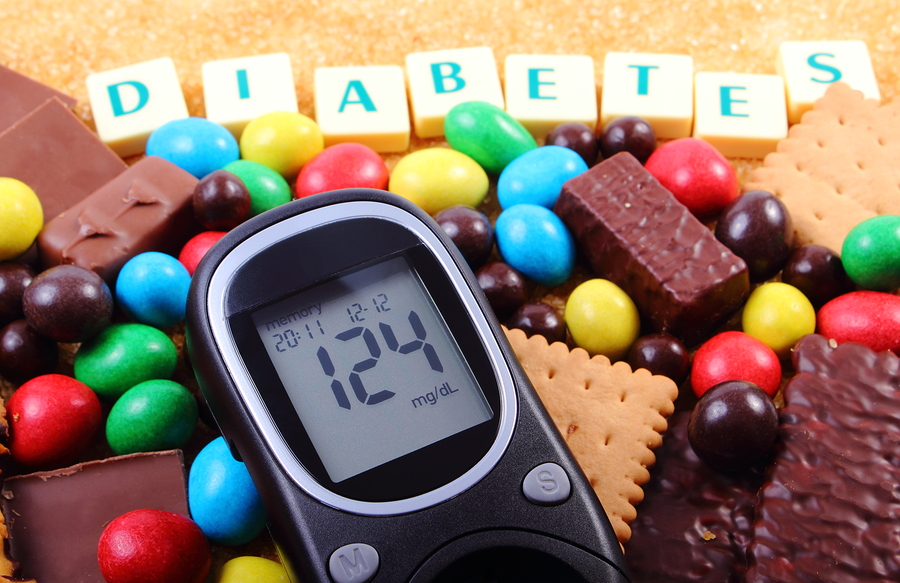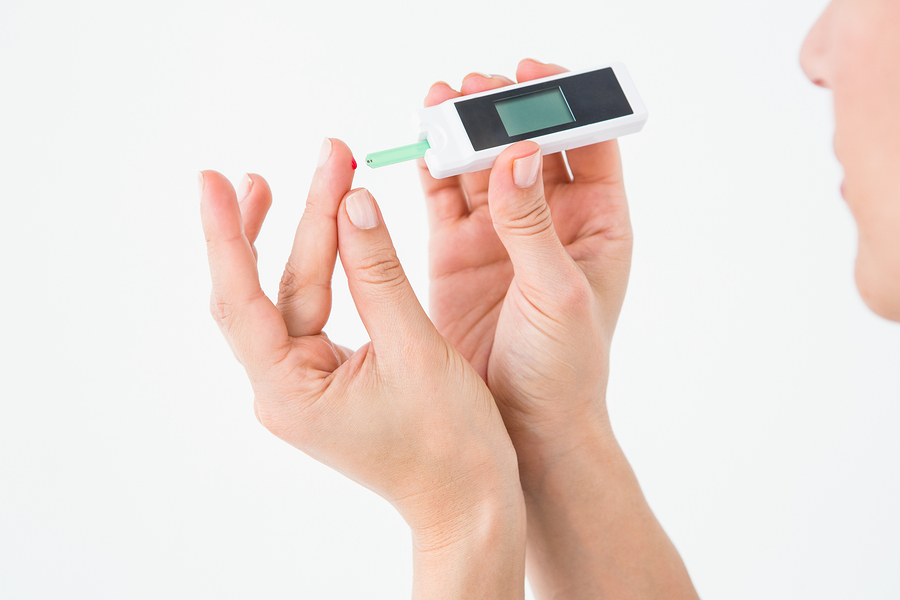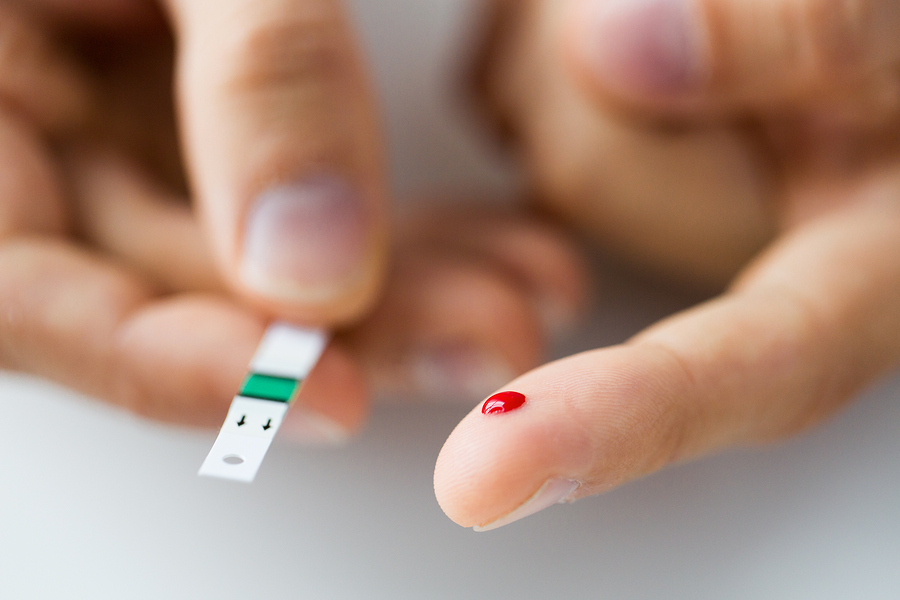- Make It Yourself Lavender Heart-Shaped Bath Bombs!
- 20 Things You Never Knew About “Down There”
- 12 Best Foods For Those Suffering From Arthritis Pain
- 12 Personal Hygiene Mistakes Almost Everyone Makes (Mom Never Told You About #4!)
- 15 Medicinal Plants And Herbs From The Cherokee People
- 12 Mind-Blowing Benefits Of Drinking Coconut Water During Pregnancy
- 12 Outstanding Winter Foods That Won’t Fatten You Up Like A Christmas Turkey
12 Things You Didn’t Know About Diabetes

Photo credit: bigstock.com
There are many things going on in the world right now: GMO’s, alternative health issues, fluoride in the water, but one thing is certain, diabetes is at epidemic proportions around the globe. Almost everyone knows someone who is living with this condition.
The serious physical and mental health complications that are associated with both Type 1 and Type 2 diabetes are less widely known than some of the complications.
Keep reading and find out the top 12 things you probably don’t know about diabetes.
1. The Way You Talk About and Think about Diabetes Can Impact How You Manage It
When you use words like “high and low” blood sugar levels, rather than saying things like “good and bad”, can help how you think about diabetes. You might think it’s nothing more than a matter of semantics, but when you say things like “checking” your blood sugar, rather than “testing” your blood sugar, it makes it sound like less of a disease and more of a problem you are managing.
2. The Non-Financial Costs of Diabetes Are Huge
If you have diabetes, then you already know that it’s not simply about sugar. Most people automatically think of diabetes and sugar in one sentence, but the truth is that diabetes are much more complicated than that. Most people find that diabetes has a huge impact on their emotional, as well as their social wellbeing.
3. All Types of Diabetes have Their Own Problems
There are three basic types of diabetes: type 1, type 2, and gestational diabetes. Although they all have one thing in common, (a lack of insulin), all three have different causes and different ways in which they must be managed. Type 2 diabetes will never turn into type 1, however, many of those with type 2 will need insulin injections at some point in their lives due to the natural way that this disease progresses.
4. Being Mindful Can Control Sugar Levels
Believe it or not, feeling in control and having a tool kit on hand to help you deal with things when they feel out of control can have a big impact on your life. Mindfulness teaches you to worry less about things you cannot control and to be more present in your daily life. This reduces feelings of anxiety and stress, which have a direct impact on diabetes. It is very important to stay healthy in all areas of your life and keep stress at a minimum. This includes adding exercise and relaxation techniques to your daily life.
Continue to Page 2

Photo credit: bigstock.com
5. Type 1 Diabetes Has Nothing to Do with Sugar
Most people do not realize that there is a type of diabetes that has nothing to do with eating too much sugar. Type 1 diabetes is an autoimmune disease because the cells which produce insulin are being destroyed by your own immune system. Scientists do not understand why this is, but they believe that something sets off an autoimmune attack. Type 1 diabetes can happen at any age, but occurs most often in those under 40. For those who have type 1 diabetes, insulin shots are necessary for their survival.
6. More and More Young People Are Developing Type 2 Diabetes
Most people believe that type 2 diabetes is something that happens to older people, and for the most part, this is true. There is a strong genetic link but diabetes most often occurs due to lifestyle factors such as being overweight, a sedentary lifestyle, high blood pressure, eating an unhealthy diet with too much sugar, and having the classic “apple” body, where extra weight is carried around the midsection. Unfortunately, more and more persons under the age of 40 are being diagnosed with this disease.
7. Once You Have Diabetes, the Impact is Relentless
If you develop diabetes, you will have to carry out self-management tasks and checks every single day, such as checking blood sugar levels, counting carbs, and consuming medications or receiving injections. This is not something that you can “forget about” for the weekend or when you go on vacation. Forgetting that you have diabetes can lead to things like kidney failure, heart attacks, nerve damage, and blindness.
8. Every Aspect of Life Affects Your Blood Sugar
Somedays, it might feel as if you are on a rollercoaster that you cannot stop. Everything seems to affect your blood sugar levels: Stress, hormones, every bite you put in your mouth, exercise (or the lack of it) and sleep. It can be difficult to control your blood sugar at times and this can leave you feeling isolated, unpredictable, and scary.
9. There is an Increased Risk of Depression
As if dealing with diabetes is not enough, studies show that those with diabetes have double the risk of developing depression as the rest of the population. Even family members of those who have diabetes suffer from this increased risk. This is because attempting to manage an unmanageable disease is a stressful situation.
Continue to Page 3

Photo credit: bigstock.com
10. There is a Little Known Problem Called Diabetes Burn Out
If you or a family member has diabetes, you might recognize this problem. You, or your loved one, might have feelings of exhaustion, a lack of interest in taking care of yourself or in sticking to your normal routine. It’s more than just one “bad day”, you suddenly cannot find the motivation to keep on managing your disease. Burn out is especially common in those who work very hard to keeping their diabetes under control, but have little success.
11. There Are Dangerous Times for Burn Out to Appear
There are some high risk times for most diabetics when they can experience burn out:
- Times of change or transition in your life
- Drug or alcohol problems
- When you do not meet your diabetes goals
- Family, work, or other relationship problems
- Periods of grief or loss
- Poverty or Homelessness
- Diagnosis of complications with your diabetes
- Problems at work
- Financial stress
- Growing older
- Dealing with changes to the body or your health
- Mental health problems
- Pregnancy or parenting when you have diabetes
12. Support is Vital to Managing Your Diabetes
For most people, the challenge of diabetes is walking a fine line between worrying about your diabetes and feeling comfortable with how you have dealt with it in your life. When you find a perspective between your goals and what you can manage, you can find that this balance helps you to prevent burn out. One of the best things you can do is to find a good support group. This might be your doctor or a diabetes educator, but most people find that support from family, friends, and others who suffer from this same disease can help you to deal with your feelings.
READ ALSO: 25 of the Top Foods to Control Diabetes (You Won’t Even Believe #19!)
If you do not know anyone, ask your doctor about a support group, or find one online. Don’t dismiss the importance of a support network! When you are overloaded with responsibilities or when your diabetes just doesn’t seem to cooperate the way it used to, when your “must do’ list becomes impossibly long and complicated, when you are at your lowest low, this is when a support group will be like a flashlight in a dark tunnel, helping you to find your way out.
References:
































